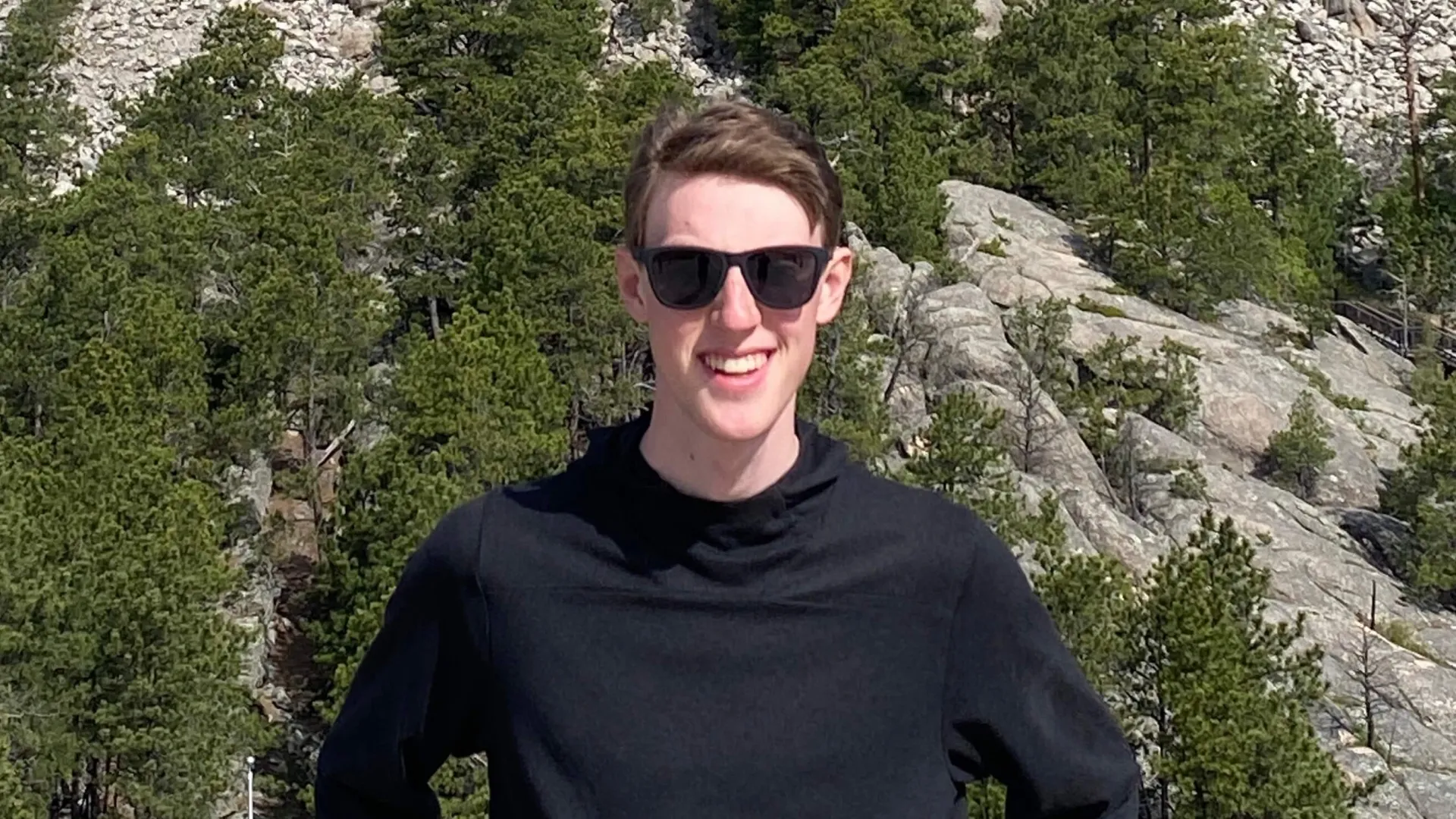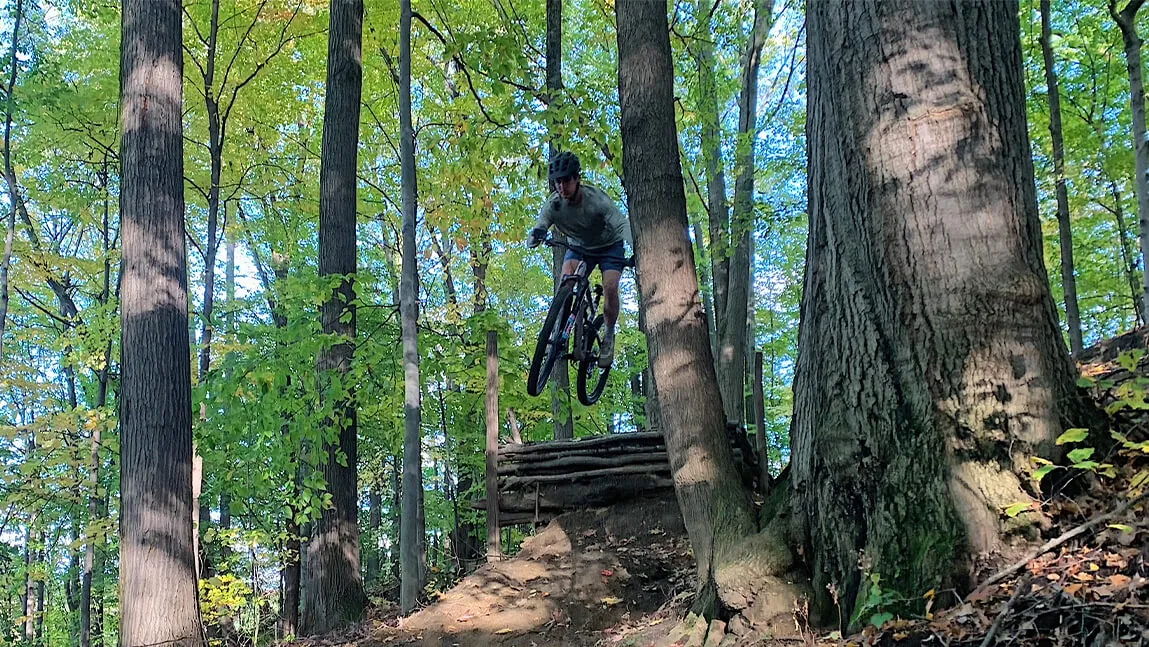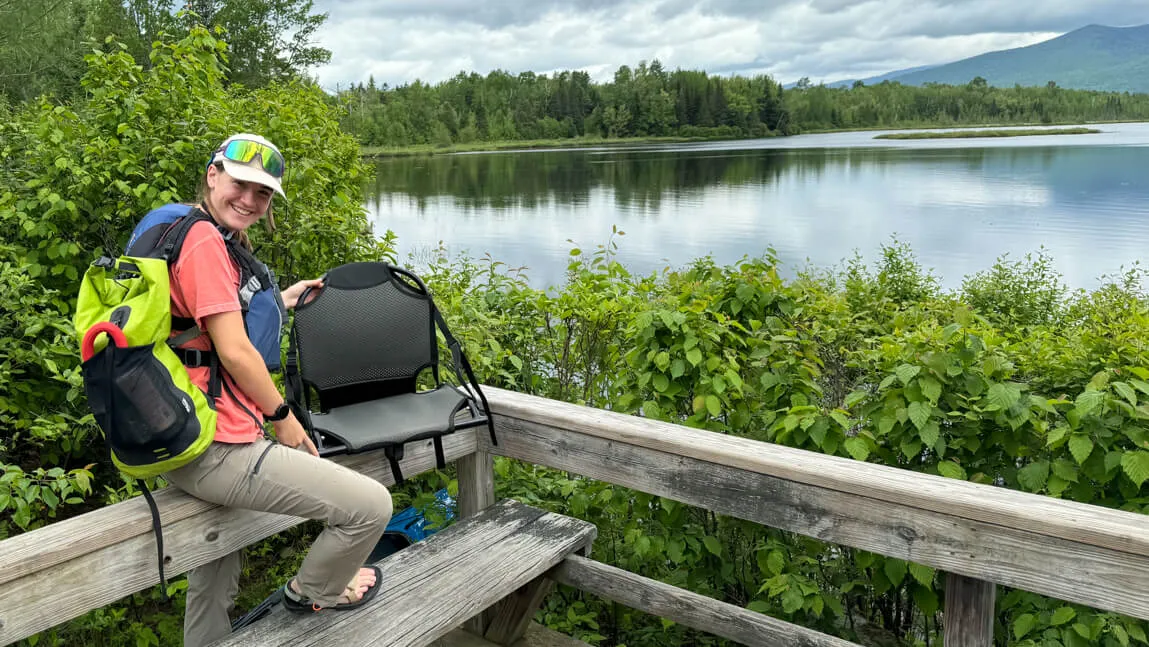“When I was seven or eight years old, I dragged my parents to a bald eagle observatory in Connecticut,” Spencer recollected. “That was a big spark moment for me. I’ve always been into animals and the natural world.”
Spencer’s passion for studying birds and how to protect them led him to a summer internship with the Institute for Bird Populations. “Birds have always been my focus, and I was looking for a bird internship,” Spencer said. “The woman that hired and interviewed me at the Institute was Mandy Holmgren, a UVM graduate. Allan Strong was a mentor of hers, and when she told me that during the interview, I knew I was going to have a great experience.”
Spencer spent the summer of 2024 in Tuolumne County, California as a field research technician with the Institute for Bird Populations on the American Goshawk survey crew in the Stanislaus National Forest. “It was fantastic,” Spencer said. “It was a dream internship for me.” In a happy twist of fate, the American Goshawk has been Spencer’s favorite bird for as long as he can remember. “It was so cool to hike the Sierra Nevadas and conduct occupancy surveys for this species I’ve loved for so long,” Spencer explained.
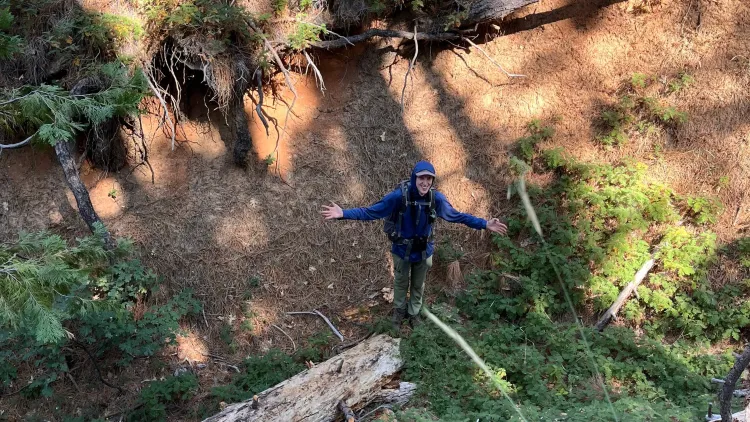
As countless Rubenstein School students and alumni know, surveying for wildlife can be grueling (and sometimes thankless) work. However, when you love the species you’re surveying and you’re dedicated to learning as much as possible, even difficult days full of new challenges and frustrations can be valuable learning experiences.
Spencer remembers June 20th 2024 with extreme clarity. It was the first time he saw an American Goshawk. “We went to this potential nesting site, which was a two hour drive away,” Spencer explained. “The roads were just awful—it was completely caved in before we entered the site, so we had to hike about a half mile to get to the location from the car.”
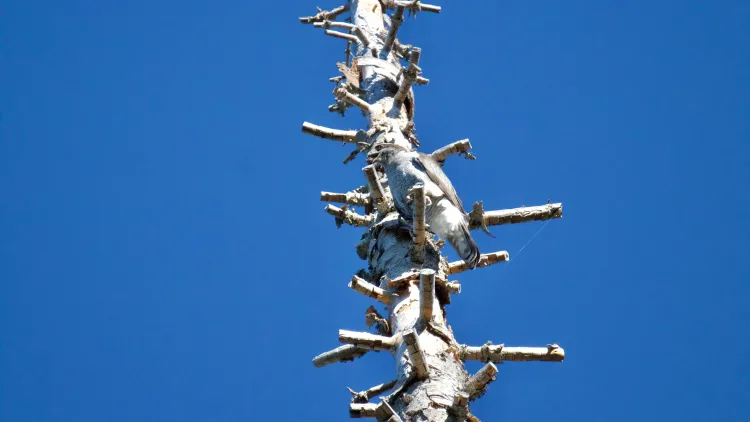
American Goshawks are known to be very secretive birds that can be hard to find and very defensive of their nests. “We knew that they had nested near this site the previous year, so we were cautiously optimistic about finding them,” Spencer said. But after searching for the nest spot to no avail, the task before Spencer and his team looked more arduous. “We had to start doing transects, and given the steepness of the site and how rough the terrain was, it was really slow-going,” Spencer explained.
The team toiled away for hours, but were still finding no signs of Goshawks or their nests. They’d hit their maximum number of daily work hours and were ready to call it quits. But then, their patience and determination were rewarded. “As we’re walking back to the car, a Goshawk flies right over us,” Spencer said. “It was awesome. We got to check off occupancy and I saw the bird that I’ve been dreaming about for decades.” Experiences like that are what make a Rubenstein School education so special and meaningful.
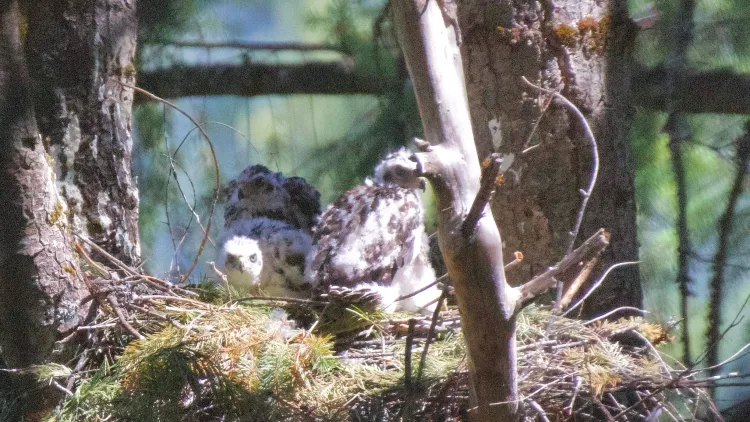
While hands-on, out of the classroom learning opportunities like Spencer’s internship are immeasurably valuable to students, traditional classroom and lab learning are crucial elements of the Rubenstein experience. While Spencer’s interest in birds might seem more in line with the Wildlife and Fisheries Biology program, he knows that he’s in the right program for him as an Environmental Sciences major.
“I like ENSC because it’s very broad and robust but still offers so many different concentrations,” Spencer explained. “My concentration is in Conservation Biology and Biodiversity, which is essentially a minor in Wildlife Biology.” Spencer’s major and concentration combination allowed him to benefit from the breadth of the ENSC curriculum while still being able to specialize in his areas of interest. “I took Ornithology with Michael McDonald and enjoyed it a lot,” Spencer said. “It opened my eyes to things I hadn’t previously considered while birding, like physiology, vocalizations, and behavior.”
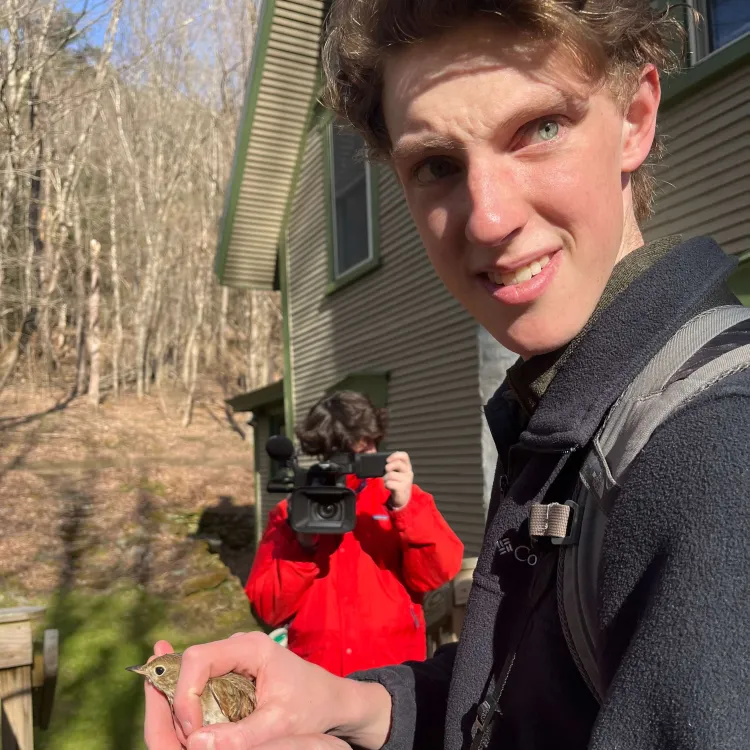
In addition to major and concentration classes, Spencer feels that the structure of the Rubenstein School education throughout a student’s academic journey is a key strength of the School, and helps people adjust well to college. “The whole curriculum sets people up to succeed,” Spencer said. “My favorite class was NR 1010 with Walt and Chris. I had a Friday lab and that was my only class on Fridays. We’d go out into different parts of the state, going up the gondola to the top of Mansfield or doing the Ricker Mountain lab in Waterbury. I really feel like I couldn’t have gotten that kind of experience anywhere else.”
While Spencer knows that he wants to work with and on behalf of birds and bird conservation in his career, he is open lots of versions of what that work could look like. “I’m looking for ways to help the environment,” he explained. “I’m looking at bird science jobs, doing field surveys, whatever I can to do help. I want to gain as much experience with birds as I can so I can help conserve them because they’re dying at very alarming rates.”
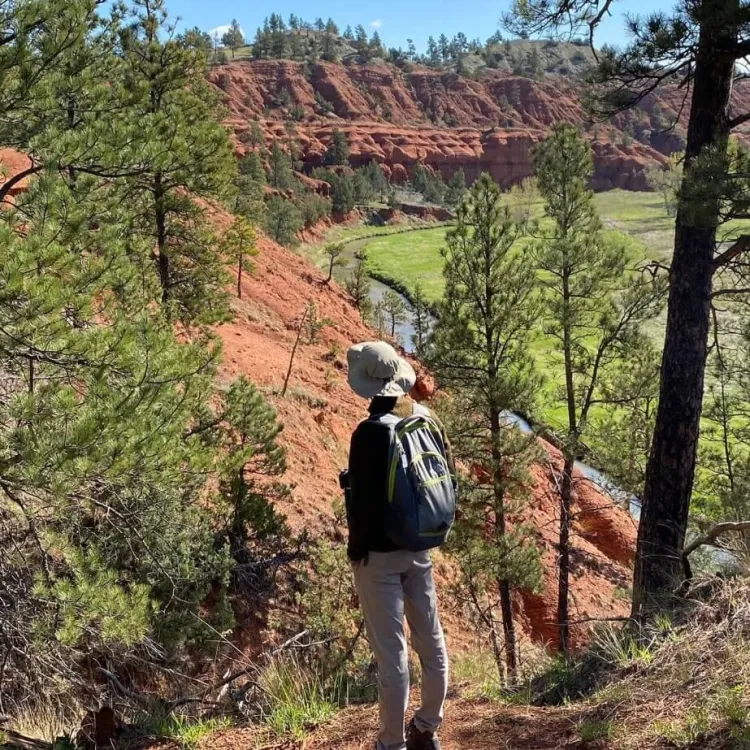
This summer, after he graduates, Spencer will begin a conservation internship with Audubon Vermont. His Rubenstein School and ENSC coursework prepared him well for the kind of work that the internship entails. “Restoration Ecology with Bill Keeton has been a great class,” Spencer said. “In my internship with Audubon, I’ll be talking to landowners about how to manage their land and forestry to promote bird diversity. I feel like I learned how to start and navigate conversations about habitat restoration in that class.”
Spencer’s advice to younger students who are planning out their academic journeys is to be prepared and always keep an eye on the future. “If you have your schedule planned out as far in advance as you can, you’ll always have a good idea of what you need to do and when you need to do it, even one to two years down the line,” Spencer explained. “Meet with your advisors often, and don’t be afraid to ask for an override if a class you need or want is full. The worst thing a professor can do is say no; it never hurts to ask.”
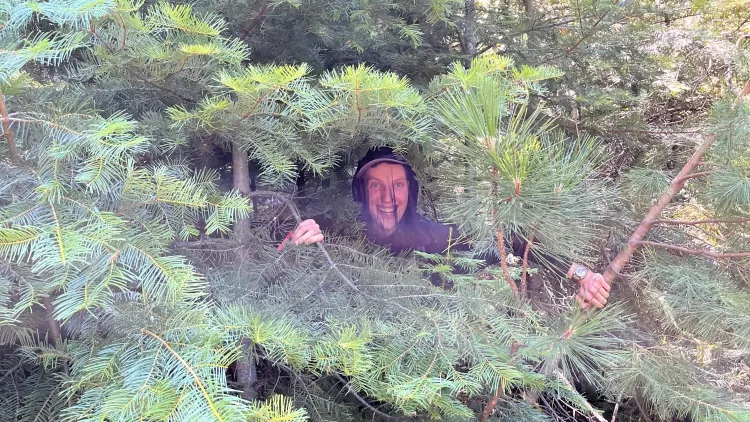
An important aspect of making the most of one’s time in college is understanding that it’s impossible to have it all. “You don’t want to overburden yourself, so it’s important to be selective,” Spencer said. “My best piece of advice is to not let your major define you. Explore different opportunities and broaden your horizons. Be open to trying new things.”
One of the things Spencer tried during his time at the Rubenstein School was serving as both the Vice President and Safety Officer of UVM’s Birding Club. The club took a trip to Audubon Vermont for a banding demonstration and took a bird walk around the grounds afterward, where they got a touch too close to a Canada Goose nest in the woods. “She charged us for a mile through the woods,” Spencer recollected. “As the safety officer, I took my responsibility very seriously, so I just kept getting between her and her group and wagged my finger at her telling her, ‘no no no,’” he said, smiling. Did it work? Spencer laughed and said, “she just kept coming!”
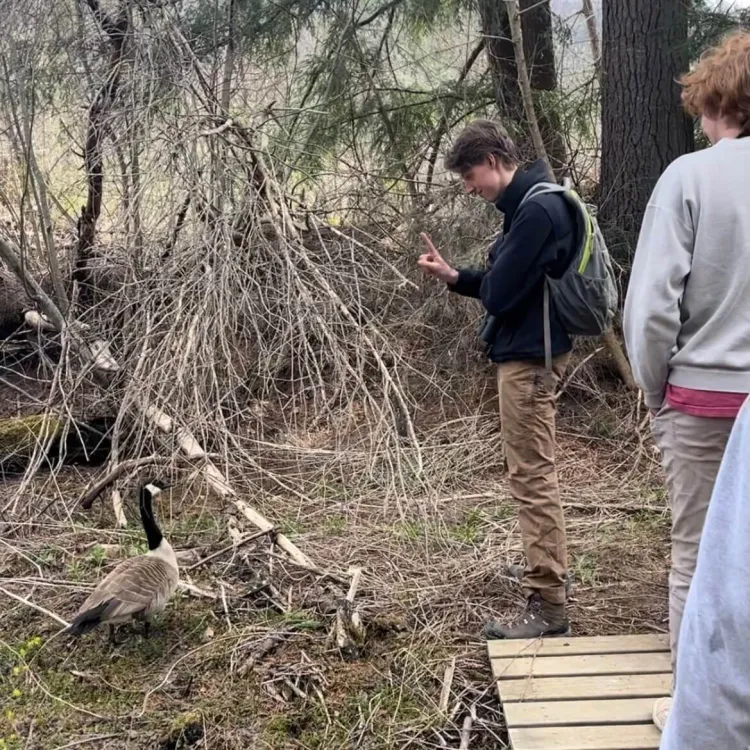
all images courtesy of Spencer Ogden
